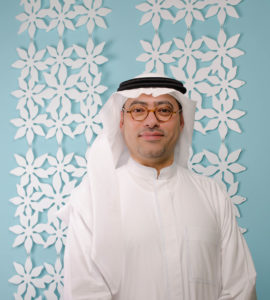 What inspired you to decide to train as a Marriage & Family Therapist?
What inspired you to decide to train as a Marriage & Family Therapist?
I come from a broken and dysfunctional family. As a kid, I always felt that I was different. I have half-brothers and sisters from both of my parents, so family dynamics have always been an area of interest for me. I wanted to understand more about this, to explore and understand what ‘family’ means.
Have you noticed a shift in the number of people in the Middle East who are attracted to personal development or therapeutic work? If so, why?
In running my practice in Saudi over the past seven years, the number of people seeking professional therapy has doubled yearly. I think there are three major reasons for this. Firstly, Saudi Arabia is changing. 75% of the Saudi population is under 30 years old. This younger generation has different thinking and different needs. Secondly, a large number of young people are educated abroad. They’ve been exposed to more professional techniques of problem solving, and can’t just accept older methods. Thirdly, therapy is quite new to Saudi. When I went back in 2013, ACT – the therapy centre where I work – was the only private centre in a city of 5 million people. Today, Jeddah has more than 200 different centres like ACT.
What are the main reasons that someone would come to you for therapy?
As a Marriage and Family Therapist (MFT), I see people who have issues and problems in their close relationships. These close relationships can include relationships with parents, with siblings, with their main partner or with friends. Any relationship that is based on emotional needs is my area of expertise.
Do you notice a change in the age and number of men and women who are interested in their own personal growth?
Traditionally, women seeking therapy have always outnumbered men, but gradually we’re seeing more and more men accepting therapy too. This started with the younger generation; now more and more of the older generation are beginning to come round.
When did you do the Hoffman Process and what motivated you to do it?
I did the Process in March 2016. Part of studying psychology is your own therapy as a human being, and as a therapist, my supervisor helps me to develop a lot in my personal life. So before I could work with other people, I had to have therapy sessions with my supervisor. My supervisor was the one who introduced Hoffman to me and advised me to go, and it was one of the best therapeutic experiences I’ve had.
In what way has doing the Process helped in your personal and professional life?
The Process can really help in different areas and it is completely personal. What affects one participant may or may not affect another. The part of the Process that helped me the most was seeing my parents as kids. The ability to see people not as the complicated adults they are, but as emotionally struggling kids was a life-changing gift for me.
What do you enjoy most about your work and working with people before and after they have done the Process?
I enjoy knowing people’s life stories. Each couple and each person is a new story for me. Seeing their development and progress is the most rewarding feeling one can have.
Any advice you’d give to people from the Middle East who are thinking of doing the Process?
Two pieces of advice. Firstly, try and understand what you really need from the Process before you attend, and share that with your Hoffman facilitator in your pre-course work. Secondly, don’t stop working on yourself after Hoffman! The Process is a bag of tools; if you don’t use them, little will change in your life.
What do you do to resource and look after yourself?
Like we do on the Process, I meditate, I work with my patterns and I regulate my emotions. I know I have a dark side that I need to remain aware of and that I have a choice to work towards my vision or against it.
Do you have a personal vision for the world?
I have a personal vision for me in which I help everyone in this world. I try to live ’peace within, peace in between and peace among’, as Virginia Satir, the MFT guru advises.
Is there anything else you’d like to share with us?
I would like to tell people that Hoffman is a community. Don’t lose touch with your community once your Process is over – stay connected.
You can find out more about Khalid and his work on Instagram: @khalidfosendi





 Sign up to receive monthly newsletters from Hoffman
Sign up to receive monthly newsletters from Hoffman